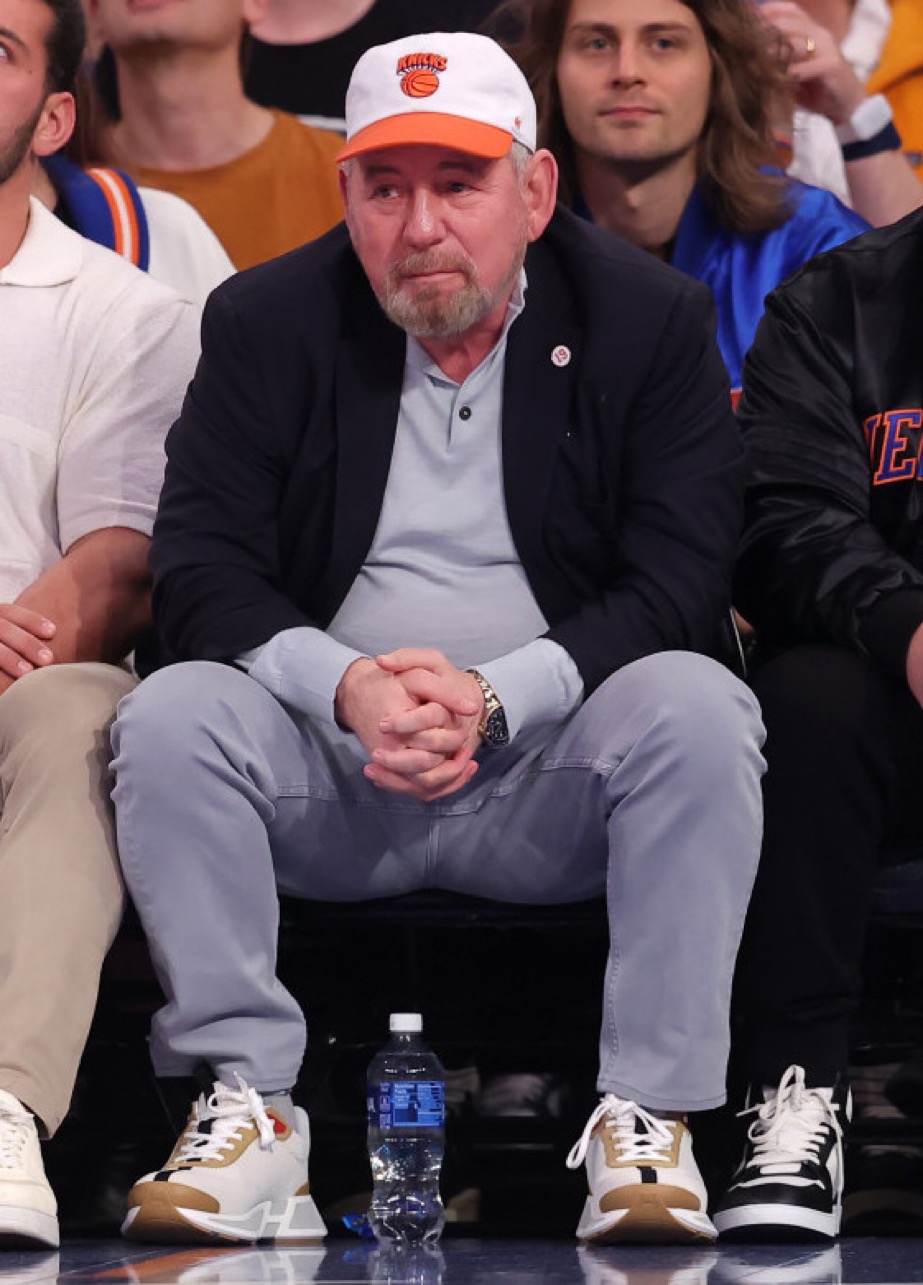James Dolan, the often controversial owner of the New York Knicks, has found himself in an unexpected role in recent months—one that some NBA owners regard as a hero for challenging Commissioner Adam Silver on a range of league issues. Known for his blunt approach and willingness to confront the league office, Dolan has been vocal on topics like revenue sharing, the salary cap, and the influence of star players in driving league narratives. While Dolan’s outspoken style has often made him a divisive figure among fans, it has resonated with certain owners who feel that he is raising important questions that the NBA needs to address.
One of the central issues that Dolan has been pressing Silver about is revenue sharing. In a league where team valuations have soared and television rights deals continue to grow, the debate over how revenue is distributed among the 30 franchises remains a contentious topic. Dolan, representing a large-market team, has been critical of the current structure that requires wealthier franchises like the Knicks to contribute significant portions of their revenue to smaller-market teams. This issue has long been a point of friction among owners, but Dolan has not hesitated to push the league office for changes that he believes would be more equitable for larger-market teams.
Some owners from smaller markets see Dolan’s stance as self-serving, but others from larger markets view him as a necessary voice in the room. These owners believe that his persistence forces the league to confront issues that have been left on the backburner for too long. For them, Dolan’s outspokenness provides a platform to discuss how the league can balance growth while ensuring that successful franchises aren’t unduly penalized through revenue redistribution. In their eyes, he is articulating the frustrations of owners who feel that their investments and the value they bring to the league should not be taken for granted.
Another area where Dolan has made waves is in his questioning of the NBA’s relationship with star players and the influence they wield within the league. The balance of power between players and teams has shifted dramatically over the past decade, with star players having more say in their career paths and decisions about team composition. While this has led to player empowerment, it has also resulted in high-profile trade demands and shifts that can disrupt team stability. Dolan’s questioning of Silver has revolved around whether the league is doing enough to maintain competitive balance and how it can prevent a few superstar players from overshadowing the broader interests of the league.
Many owners, particularly those whose teams have not been able to attract or retain superstar talent, share Dolan’s concerns. They argue that the league’s focus on promoting its biggest names sometimes comes at the expense of supporting smaller-market franchises. Dolan’s willingness to challenge the commissioner on this point has made him a voice for those who feel that the league’s strategy should be more balanced in promoting all 30 teams, not just the ones with the most marketable stars. In this way, Dolan has emerged as a spokesman of sorts for a segment of owners who believe the NBA should prioritize stability over star-driven drama.
Dolan’s questioning of Adam Silver’s handling of these issues has sometimes put him at odds with the league office and some of his fellow owners. However, the fact that a “bunch of owners” view him as their hero for raising these questions speaks to the underlying tensions within the ownership ranks. For these owners, Dolan’s confrontational style represents a willingness to stand up to the league office and challenge the status quo. They appreciate that he is not afraid to ask tough questions and force discussions that, while uncomfortable, are necessary for the league’s long-term health.
This dynamic has highlighted a broader debate about the direction of the NBA and the role of ownership in shaping that future. As the league navigates the complexities of modern sports business, from television rights deals to player movement and international growth, Dolan’s challenges to Adam Silver underscore the need for balance between the desires of ownership and the interests of the players and fans. While many may disagree with Dolan’s tactics or motivations, the support he has garnered from some of his peers suggests that the questions he is raising are resonating within certain corners of the ownership ranks.
In the end, James Dolan’s emergence as a figurehead for a group of like-minded owners reflects the ongoing debates within the NBA’s inner circle. His willingness to challenge Adam Silver on issues of revenue sharing and player power may not always lead to immediate change, but it has ensured that these critical conversations continue to take place. For those who support his stance, Dolan’s role as a vocal advocate represents a desire for the league to take a more balanced approach to its growth and governance. And for Dolan, the support of fellow owners only strengthens his resolve to keep pressing the commissioner on the questions that he believes matter most to the future of the NBA.
